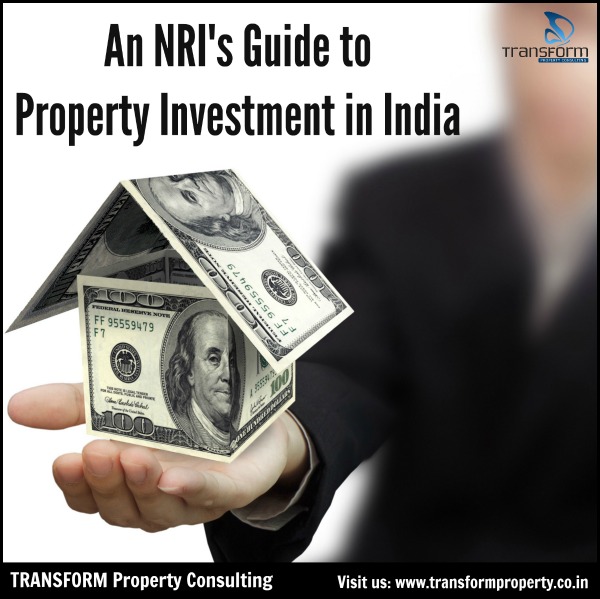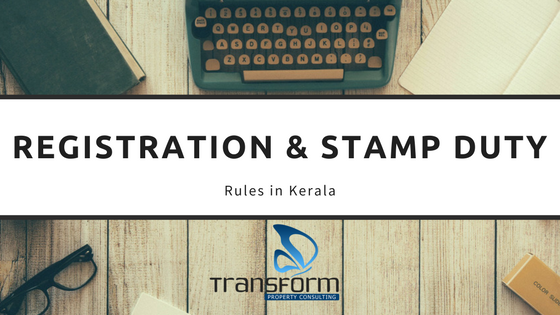
Any Indian, irrespective of where they are currently located in the world, dreams of owning a home in India. Over the years, Indian laws have also become more accommodating, making the entire process fairly easy.
The Reserve Bank of India governs an NRI’s property investment transactions and they come under the authority of FEMA (the Foreign Exchange Management Act).
Who Can Buy Property in India?
According to the general permission granted by the Reserve Bank of India, NRIs, PIOs & OCIs can purchase immovable property in India. But this general permission only covers the purchase of residential and commercial property. It does not allow the purchase of agricultural land, plantation property or a farm house in India.
Classification of Expatriate/Overseas Indian
Here is a detailed description of who constitutes an expatriate or overseas Indian.
NRI
A non-resident Indian (NRI) is a citizen of India holding an Indian passport, who has temporarily immigrated to another country (for six months or more) for education, work, residence, or any other purpose.
PIO
A person of Indian origin (or ancestry) either was, or had ancestors who were born in India or other nations of Indian ancestry. A PIO is not an Indian citizen, and is the citizen of another country. He/she was probably once a citizen of India, and later became the citizen of another country.
OCI
A foreign national might have been eligible to become a citizen of India on 26th January 1950, or belonged to a territory that became part of India after 15th August 1947. This foreign national’s children and grand children are eligible for registration as OCI. But they will not be eligible for OCI status if the applicant had ever been a citizen of Pakistan or Bangladesh.
What Type of Property Can an NRI/PIO/OCI Buy in India?
 The Reserve Bank of India permits an NRI, or a PIO to buy residential and commercial property in India. But they cannot purchase agricultural land, plantation land or a farm house in India. They are not allowed to even acquire such property as a gift.
The Reserve Bank of India permits an NRI, or a PIO to buy residential and commercial property in India. But they cannot purchase agricultural land, plantation land or a farm house in India. They are not allowed to even acquire such property as a gift.
An OCI can also purchase immovable property in India barring agricultural land, plantation property and farmhouses.
But it is to be noted that an NRI or a PIO or foreign national of non-Indian origin (OCI) can hold immovable property acquired by way of inheritance.
Documents Required for Buying Property
Here are the documents an overseas Indian would need when they’re trying to purchase commercial or residential property in India.
- Address proof
- OCI/PIO card (In case of OCI/PIO)
- PAN card (Permanent account number)
- Passport (In case of NRI)
- Passport size photographs
Repatriation of Funds
 The term “repatriation” basically means the flow of capital from a foreign country to the country of origin. In this case, it is the foreign earnings that an overseas Indian has to transfer back to India in order to buy some property.
The term “repatriation” basically means the flow of capital from a foreign country to the country of origin. In this case, it is the foreign earnings that an overseas Indian has to transfer back to India in order to buy some property.
An NRI, PIO or OCI can purchase immovable (commercial & residential) property in India using their repatriable funds. But a major clause regarding the purchase is that none of the payments can be made in foreign currency.
The buyer has to make the purchase in rupees through funds received in India via normal banking channels, or through funds maintained in any non-resident account under FEMA and RBI regulations.
Another condition is that the amount to be repatriated should not exceed the amount paid for the property in foreign exchange received through normal banking channel or by debit to an NRE account.
Types of accounts that can be maintained by an NRI / PIO in India
An NRI or PIO can open, hold and maintain the following types of accounts with an authorized bank in India, without explicit permission from the Reserve Bank.
- Non-Resident Ordinary Rupee Account (NRO Account) : Any individual residing outside India may open an NRO account with an authorized dealer (or an authorized bank) for the purpose of conducting a legitimate transaction in rupees. NRO savings accounts can also be maintained through post offices in India.
- Non-Resident (External) Rupee Account (NRE Account) : An NRE account can be in the form of savings, current, recurring or fixed deposit accounts. These accounts can only be opened by the NRI himself (as defined under Regulation 2(vi) of Notification No. FEMA 5/2000-RB dated May 3, 2000) and not through the person who holds the power of attorney.
- Foreign Currency Non Resident (Bank) Account – FCNR (B) Account : NRIs are eligible to open and maintain FCNR (B) accounts in the form of term deposits taken for a period of 1 to 5 years. The account can be held in any freely convertible currency.
Power of Attorney (POA)
 As we have established so far in this article, any NRI is allowed to purchase and sell property in India, as long as they comply with the requirements imposed by the Reserve Bank of India (RBI).
As we have established so far in this article, any NRI is allowed to purchase and sell property in India, as long as they comply with the requirements imposed by the Reserve Bank of India (RBI).
The NRI does not have to be physically present in India in order to purchase or sell a property. The process can be facilitated by one of their representatives in India – someone who holds the power of attorney to act on their behalf.
The power of attorney gives an individual the power to act on behalf of another. The scope of the authority granted is as mentioned in the deed. The person who gives the power is referred to as the “Donor”, “Grantor” or “Principal.” The person to whom it is granted is referred to as the “Donee”, “Grantee”, “Agent” or “Attorney.”
The two major types of POA are General Power of Attorney and Special Power of Attorney. A General Power of Attorney is granted when the Agent has to be empowered to conduct many transactions on behalf of the Principal. A Specific Power of Attorney is granted when the Agent has to conduct only specific transactions.
Execution of Power of Attorney by an NRI
The power of attorney should be executed on a stamp paper or plain paper (whichever is applicable in the country where the power of attorney is executed). The NRI needs to sign the power of attorney before a consulate officer or a notary in the country where he is residing. The signature on the deed has to then be attested by the consulate officer or notary.
It is highly advisable to get the power of attorney attested by the Indian consulate, so that it may be considered more authentic. The POA (Power of Attorney) then has to be sent to India, where it should be presented for adjudication within three months.
Adjudication of the POA (Power of Attorney)
Adjudication is the process of registering the PoA document in the registrar’s office in order for it to be accepted as a registered POA. Once it has been adjudicated, the POA cannot be misused by altering it. After registration, the document will remain with the registration department. A copy of the document can be obtained even several years after the actual transaction, if anyone wants to verify its authenticity.
The stamp duty to be paid for the POA registration varies for each state in India. It is also determined based on the contents of the deed.
Tax on Income from Immovable Property
According to the general permission granted by the Government of India, NRIs, PIOs and OCIs do not have to pay any taxes when they are acquiring property in India. But if they are selling this property, they will have to pay Long Term or Short Term Capital Gains Tax. Also, any rent collected from the property is taxable, and the owner will have to obtain a PAN card and file their income tax returns.
Capital Gains Tax
Capital Gains Tax is the tax attracted on the profit made from a real estate transaction. There are two types of Capital Gains Tax, categorized based on how long the property was owned.
- Short Term Capital Gains (STCG)
If the investor purchases a property and sells it within 36 months, the profit gained is called Short Term Capital Gains. It is calculated as the difference between the cost price and selling price of the property. The short term capital gain will be directly added to the investor’s income and he will be taxed based on the income slab in which he falls. - Long Term Capital Gains (LTCG)
If the investor purchases a property and sells it after 36 months, the profit gained is called Long Term Capital Gains. The income tax on long term capital gains is calculated at a flat rate 20%, irrespective of the investor’s income.
For more information on Capital Gains Tax and how it is calculated, you can refer to The Beginner’s Guide to Capital Gains Tax.
Income Tax
Any NRI, OCI or PIO has to file their income tax returns if their taxable rental income in India for the financial year is above the basic exemption limit. They also have to file their income tax returns if they have earned short-term or long-term capital gains from the sale of any of their investments or assets, even if the gains are less than the basic exemption limit.
They can also file tax returns to claim a tax refund if the tax deducted at source is more than the actual tax liability. They can also claim a tax refund if they have given to tax-deductible charities, invested in certain tax-deductible savings schemes, or undertaken a home loan.
How to File Income Tax
An NRI can easy file their Indian tax returns online. They can also file their returns by giving the power of attorney to someone in India, or by sending the required documents to a tax consultant in India who can file the returns on their behalf.
Home Loans
 The RBI allows NRIs to take home loans for purchasing property in India. They are also permitted to take loans for home repairs and renovations.
The RBI allows NRIs to take home loans for purchasing property in India. They are also permitted to take loans for home repairs and renovations.
EMIs on the home loan can be paid in any of the following ways:
1) By remitting the money from the NRI’s foreign bank account through regular banking channels
2) By issuing post dated cheques or Electronic Clearance Service (ECS) from the individual’s NRE, NRO or FCNR Account
3) Out of the rental income that the property earns
4) Through cheques issued from a local relative’s bank account
Tax Benefits Available on Repayment of Home Loans
According to section 24 of the Income Tax Act, the interest on a home loan is deductible from the income gained from house property to the extent of Rs 1.5 lakh per annum. Moreover, up to Rs 1 lakh of the principal repayment can be deducted under section 80C (subject to an overall limit of Rs 1 lakh of that section).
I hope this article has given you a clearer picture of what an NRI needs to do in order to invest in the Indian real estate market. If you have any other queries, please feel free to contact us.


Very informative section.
As a OCI. I want to buy an apartment.when making payment to the builder.any tax is involved?.
Am I to deduct TDS and pay.
What is the procedure.
Thanks.
Hi Rajaram,
As per Income Tax Act, TDS provisions apply for any property transaction above Rs 50 lakhs. Unless you produce the TDS certfiate, the Registration Dept will not allow you to register the property.
Thanks,
Team Transform
8139 800 800
Can I sell existing property in India without an OCI Card?
Hi Binoy
Thank you for contacting TRANSFORM Property Consulting. We would need a lot more details regarding your question to give you an exact response. But at a high level you need to be careful regarding the sale of a property in India when you are an OCI. This is more to do with repatriation of your sale proceeds and the restrictions related to that, than about whether you can sell your property or not per se. Please do provide us with more details and also what you would like to do with the proceeds. The solution depends on that.
Please contact us at hello@transformproperty.co.in or give us a call at +91 8138 800 800.
Hope this information helps!
Regards
Team TRANSFORM
What about getting funds back from either rent or sale of such property in India to US ?
Hi Stuti
Thank you for contacting TRANSFORM Property Consulting. Can you please elaborate what your exact question is? The repatriation of money from India to US comes under the RBI guidelines for the same and there is a prescribed approach to do the same. Also there are several conditions depending on the exact nature of the situation. This depends on the nature of property, Residential / Commercial, Volume of repatriation, The funds used to acquire the property, inherited property etc.
Hope it helps!
Regards
TEAM TRANSFORM